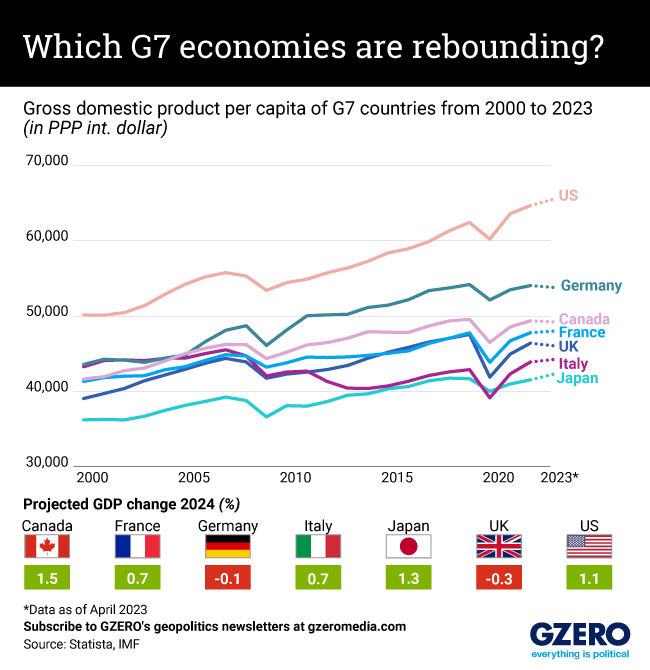The Graphic Truth: Which G7 economies are rebounding?
G7 nations – the US, UK, Germany, France, Italy, Japan, and Canada – are among the wealthiest economies in the world, but that doesn’t mean they have been insulated from economic disruptions over the past two decades.
When it comes to GDP per capita – which reflects a country’s economic performance relative to its population size and levels of productivity – the US rises well above other G7 states. This is largely because the US economy is more dynamic and more open to risk. Consider that the US has the most unicorn startups in the world – and by a long shot. It has also sought to revitalize cities in the South and West, giving a further boost to overall productivity. This breadth also makes the US economy more resilient, helping it recover faster when economic downturns – caused by a pandemic and war in Europe – ripple through the global economy.
When it comes to overall economic growth, however, Canada is expected to come in first place in 2024, in part due to a strong labor market that recovered quickly post-pandemic.
We look at how GDP per capita among G7 nations has changed since the turn of the century and give a snapshot of projected growth in these countries in 2024.
